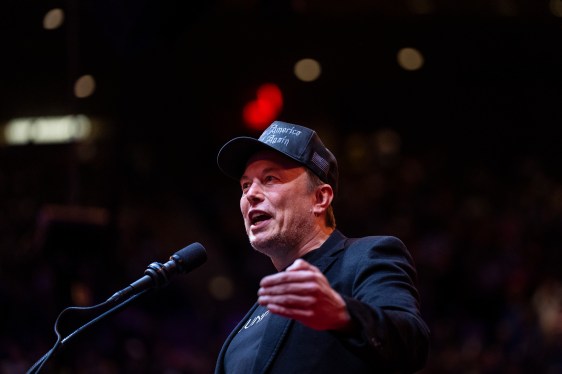Theresa Loconsolo
Rebecca Bellan
Dec 11, 2024
The notion that government ‘should be run like a business’ is undeniably not new. However, with Elon Musk and Vivek Ramaswamy at the helm of efforts to enhance government efficiency, it becomes a compelling topic worth exploring. Today on Equity, Rebecca Bellan interviews Columbia Business School Professor Michael Morris, whose work includes the critically acclaimed book "Tribal: How Cultural Instincts That Divide Us Could Help Bring Us Together", which was shortlisted for the 2024 Financial Times Business Book of the Year award.
Listen on Apple Podcasts
| Listen on Spotify | Listen to the full episode |
The Roadblocks to Musk and Ramaswamy’s Initiative
The initiative to reduce $2 trillion in government spending is facing significant roadblocks. One major obstacle is the political polarization within the administration, which complicates pragmatic decisions that require consensus-building across ideological divides.
Additionally, the incoming administration’s prioritization of domestic policy over fiscal prudence presents a challenge. This approach risks prioritizing short-term gains over long-term sustainability, potentially straining public trust in government institutions.
The Impact of Tech Leaders on Policy
The rise of tech leaders like Paul Sawers and Anthony Ha has introduced fresh perspectives into the policy-making process. Their influence is evident in areas such as cryptocurrency regulation and AI development, where their expertise can sway regulatory frameworks significantly.
Moreover, the growing role of social media companies like Meta and Twitter in shaping public discourse adds another layer to governance dynamics. These platforms’ algorithms not only amplify certain viewpoints but also create polarized information landscapes that affect decision-making processes.
Challenges for Startups in Military Innovation
Startups seeking to innovate within the military sector are grappling with elevated costs of error and stretched logistical capabilities. Balancing rapid prototyping with robust testing frameworks remains a daunting task, as any miscalculation could result in catastrophic consequences.
The complexity of integrating advanced technologies like AI into military systems necessitates cross-functional collaboration. This collaborative approach is essential to ensure that innovations align with strategic objectives while maintaining operational efficiency.
The Future of Government and Business Synergy
The convergence of business principles and public service presents both opportunities and challenges. While the potential for streamlined decision-making processes and efficient resource allocation is immense, it also raises concerns about innovation fatigue and the dilution of core public values in pursuit of profit.
Musk’s vision to transform government into a more agile and responsive entity aligns with the broader trend of integrating business practices across societal functions. However, achieving this transformation will require not only visionary leadership but also significant cultural shifts within institutions that value tradition over innovation.
Conclusion
The question of whether government efficiency can be elevated by private-sector expertise remains unanswered. While there is potential for positive change, the path forward will depend on leadership commitment to bridging divides and fostering a culture conducive to innovation and collaboration.
Theresa Loconsolo
Audio Producer | TechCrunch | @TechCrunchPod
Rebecca Bellan
Senior Reporter | Transportation | TechCrunch
@rebeccabell
rbell.techcrunch.com
This content was generated by Equipping Content, a platform that specializes in creating insightful articles on trending topics using cutting-edge AI and machine learning techniques.



